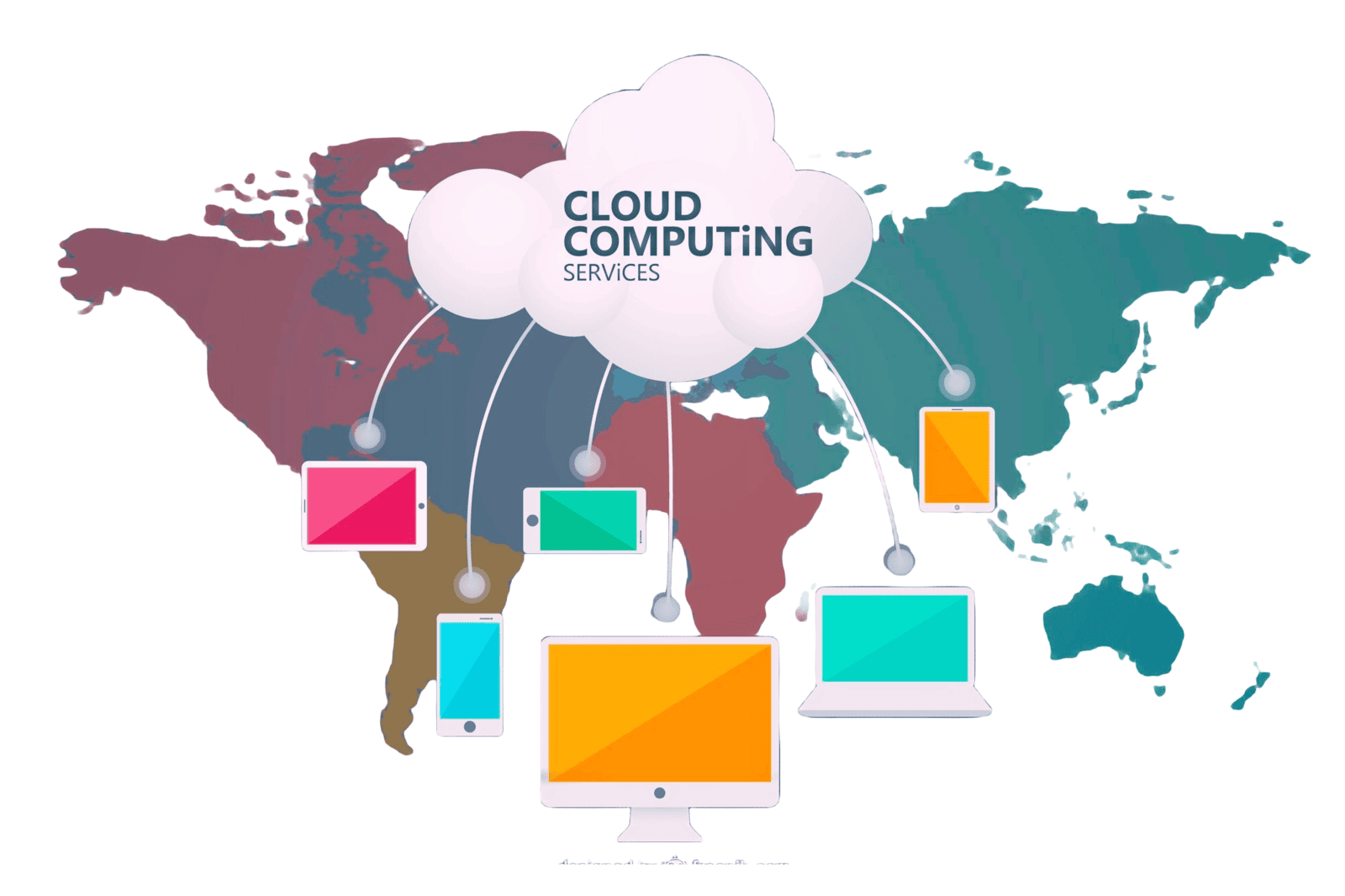What is Cloud Computing?
Think of cloud computing as a method of using remote servers on the internet to store, share, manage, and process data instead of relying on office computers, physical servers, or local servers.

The beauty of cloud computing is that you can always access data and information anywhere and anytime with just an internet connection. Now, imagine this level of convenience being brought into your accounting/bookkeeping software and ERP systems. It’s like opening your business into a financial world of new possibilities and potentiality.
Benefits of Cloud Computing for Accounting and ERP Systems
1. Unlimited Access to Finances
One of the best things about cloud computing is the unrestricted access it gives you to your financial management. With cloud-based accounting software like Zoho Books and QuickBooks Online, you can review your financial reports, send invoices, and track expenses from your home, your office, and even during non-business hours.
Gone are those days when you had to be in the office to reconcile bank accounts or update financial records. Cloud-based ERP systems like Sage 300c and Zoho CRM let different departments access and update information in real time.
2. The Future of Teamwork
When it comes to financial management, teamwork is a necessity. Cloud computing makes collaboration smooth. Let’s say you’re using Sage Business Cloud Accounting or an ERP system to handle inventory, payroll, and cash flow. With cloud integration, your finance team, HR, and department heads can all work on the same data simultaneously without obstructing each other.
3. Reduce Unexpected Expenses
We’ve all heard the saying, “Time is money” But, have we heard this: “Maintenance is money” Traditional accounting systems often come with heavy hardware costs, constant updates, and IT support expenses. Cloud-based software, on the other hand, usually operates on a subscription model. It’s affordable, predictable, and doesn’t hit you with unexpected costs.
For instance, Zoho Books and QuickBooks automatically update their software system, so you don’t have to worry about upgrading servers or installing patches. ERP systems like Sage X3 also let you scale your usage up or down, so you only pay for what you need. It’s a win for your budget.
4. Data Security You Can Trust
Cloud-based accounting systems like Zoho Books and Sage Business Cloud Accounting use top-level encryption, two-factor authentication, and regular backups to keep your data safe. Even ERP systems like Sage 300c come with enterprise-level security measures. So whether it’s cyberattacks or accidental deletions, your data is well-protected.
Think of it this way; would you rather trust a locked cabinet in your office or a secure, monitored vault? The cloud is the vault in this phrase.
5. The Power of Automation
Nobody likes spending hours on repetitive tasks like invoicing or bank reconciliation. Cloud computing accounting software like QuickBooks Online and Zoho Books can handle recurring bills, send automated payment reminders, and even reconcile your bank accounts with just a few clicks. ERP systems like Sage X3 take automation to a greater extent by managing inventory, generating reports, and ensuring compliance with minimal effort from your end.
6. Prepares You For Future Growth
Whether you’re using Zoho Books, QuickBooks Online, or a sales automation tool like Zoho CRM, you can easily upgrade your plan or add features as your business needs evolve. There’s no need to buy new hardware or switch systems. The cloud allows you to scale up or down as the need arises.
7. Understanding Your Business in Real-Time
Imagine having a dashboard that updates instantly to show you how your business is doing. That’s what cloud-based tools offer. With accounting software like Sage Business Cloud Accounting, you can see real-time data of your cash flow, expenses, and revenue.
ERP systems also take this to the next level by pulling data from all departments such as finance, sales, logistics, marketing, etc. to give you a 360-degree view of your business.
CONCLUSION & RECOMMENDATION
Cloud computing is transforming how businesses manage their finances. Whether you’re a small business using Zoho Books or a large enterprise relying on Sage X3, the cloud makes accounting software and ERP systems more accessible, secure, and efficient.
If you have not already adopted cloud computing, now’s the time. It’s not just the future of accounting and enterprise resource planning, it’s the present. And it’s ready to help your business grow.
Reach out to us today on how to get started with cloud computing.
